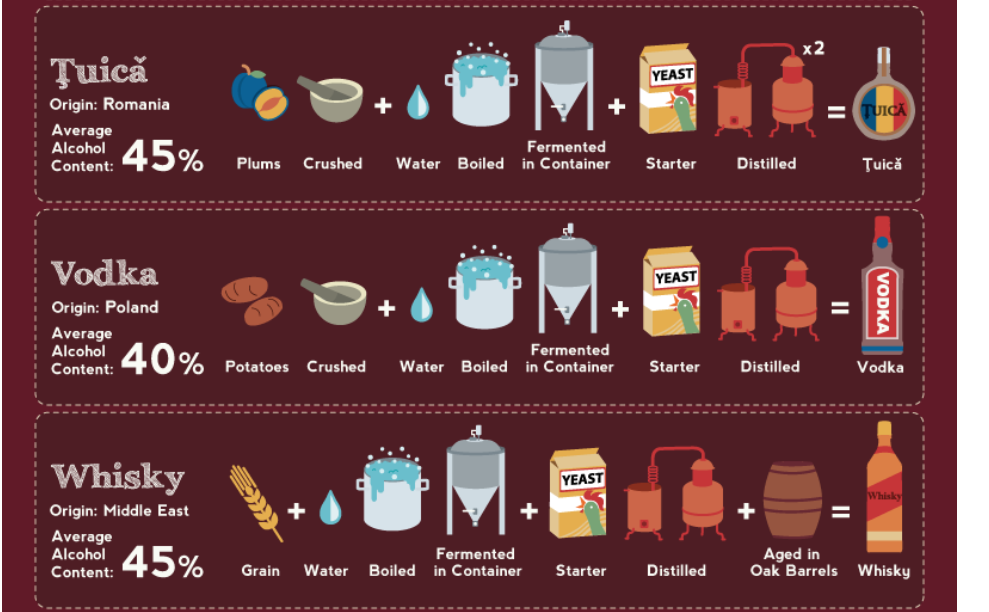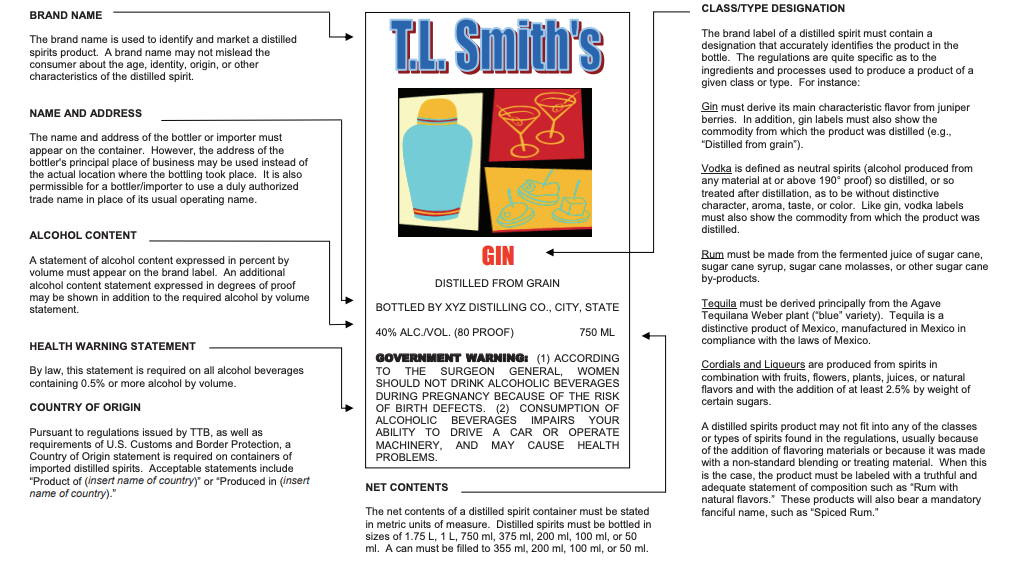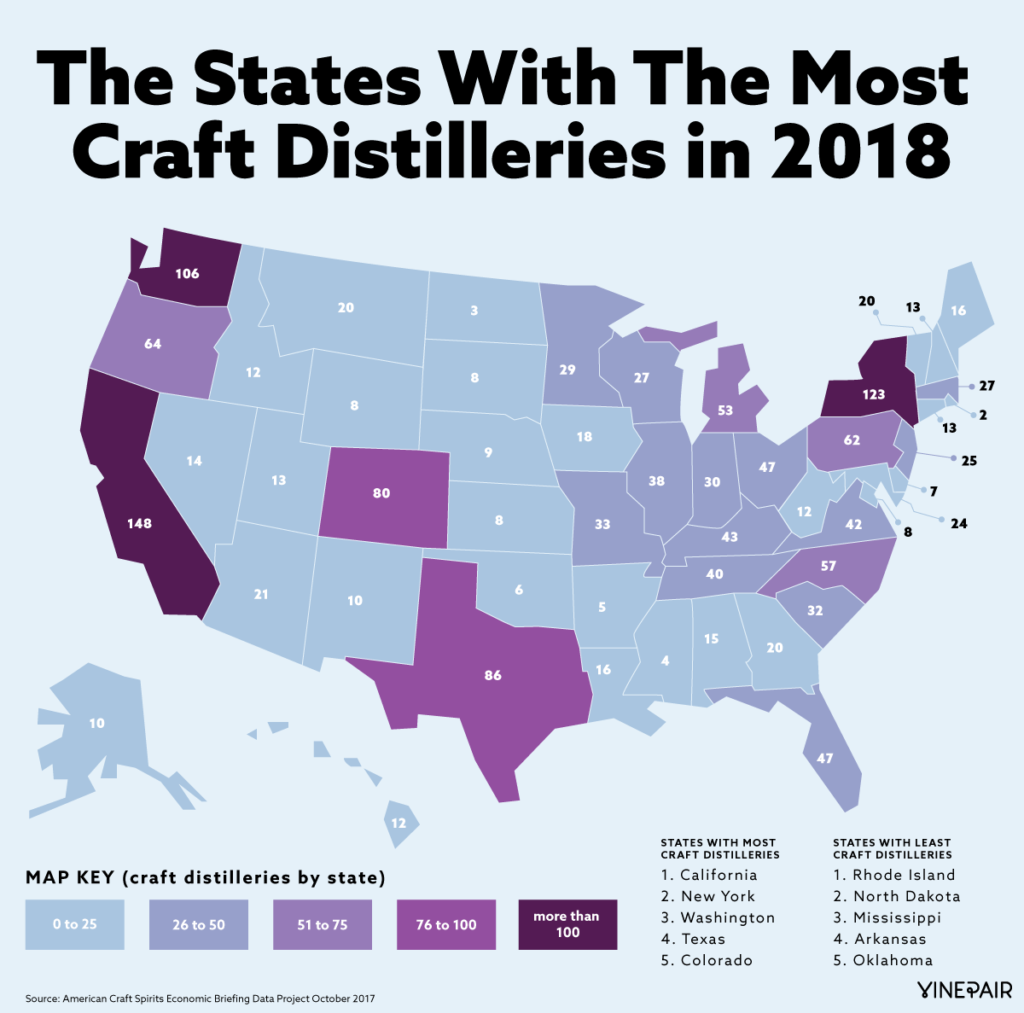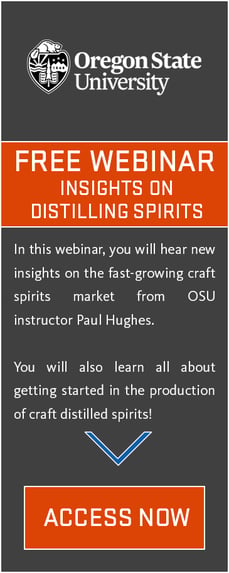Have you thought about opening up your own craft distillery?
Maybe you even have the perfect location.
However, like most things worth having, your distillery won't just be handed to you. For instance, you'll need to talk with your local liquor licensing agency to see if it's legal to build a distillery in a certain area. In Oregon, it would be the Oregon Liquor Control Commission.
Your local liquor licensing agency can help you dive deeper into the specifics - like how far away it has to be from a school or residential area.
Watch the video or continue reading to find out more about the legal requirements you should be aware of when starting a new distillery.
Beyond Just the Perfect Spirits Recipe
Let's say you've done it.
You just created the best-tasting whiskey the world has ever known. However, you can't actually sell it.
At least not at first.
You'll need to file the proper paperwork with agencies at the federal, state and local levels. Here's our extensive Guide to Completing the TTB Application and Oregon Liquor Control Commission Licensing.
Alcohol and Tobacco Tax and Trade Bureau
If you're trying to design a new product and it's sufficiently novel, the Alcohol and Tobacco Tax and Trade Bureau (TTB) will ask for a Pre-COLA, which is a certificate of label approval.
For the most part, you will need to get your formula approved if you plan on producing (or importing):
- Brandy
- Cognac
- Flavored gin
- Vodka
- Whisky
Also, if you plan on using some fancy new ingredient in your amazing new spirit, the TTB will ask that you perform sufficient analysis to make sure it's a "potable" product. The last thing you want is for anyone to get sick.
For example, stone fruits and potatoes can have high levels of methanol. So, you have to be quite careful about your distillation because methanol is rather toxic.
If you've wondered about common ingredients in popular spirits, the Vine Daily has a great post titled The Compendium of Alcohol Ingredients and Processes."
How to Obtain Distilled Spirits Permits for a Craft Distillery
The TTB's goal is to ensure you're legally qualified to operate your distillery and that you'll do it safely and fairly.
You can read more about how to qualify for a distilled spirits permit. The TTB also has an online permits tutorial that covers the process and key terms and phrases to be aware of.
In short, this step is akin to a background check with questions about you (ex - whether you've been a felon) and your family. It also has questions about any investors and where your development money is coming from.
You will also need to include information about your distillery's physical space. As the TTB says, "Generally you should have construction completed and necessary equipment in place or on order before you submit your application."
You should also be mindful of how secure your location is and how you will protect it from hazards like fire and theft.
Once you fill out the proper paperwork, be patient. It can take anywhere from three to six months (on average) before everything is approved and you're able to proceed.
Receiving Approval on Your Spirits Label
Once you receive your federal distillery permit, you'll need to get your spirit label approved as well. Here's the TTB's brochure that breaks down everything you'll need to include on your spirit label. In short, you'll need to include:
- Brand Name
- Name and Address
- Alcohol Content by Volume
- Degree of Proof
- Health Warning Statement
- Country of Origin
- Net Contents
- Class/Type Designation
Don't Forget About FDA Approval
In addition to the TTB, you'll also want to make sure your distillery is registered with the US Food and Drug (FDA) as a food facility. While the TTB covers alcohol beverages, there's overlap with the FDA who covers food safety, which includes alcohol beverages (wine, beer, and spirits).
You can read more about registering food facilities with the FDA.
State Requirements for a New Distillery
Every state has its own requirements and they may even break it down into separate counties. Of course, the most famous one is Lynchburg, Tennessee, where Jack Daniels is produced, however, it's also in Moore County, which is a dry county.
Once you have your federal license, you'll move on to getting your state license. The state license should be easier to obtain; however, some states are more amenable than others for starting a distillery.
Here's a handy breakdown from the Hobby Distiller's Association for state-by-state rules and regulations.
And states also have unique rules on how distilleries can market and sell directly to consumers.
The American Distilling Institute surveyed a range of folks from distillers, distiller guilds and state alcohol control boards and produced this Survey of Tasting Room Laws by State.
Distilleries by State
About 10 states comprise about half of all craft distilleries.
As states update their rules and regulations on production and the sales and distribution, the number of distilleries will continue to go up and up.
Here is VinePair’s map of the states with the most craft distilleries.
Local Requirements for a New Distillery
Distillery Startup Workshop From OSU
If you would like personalized one-on-one coaching and instruction on how to open your own distillery and avoid common mistakes, you can read more about Oregon State University's Distillery Startup Workshop.
In the expert-led five-day workshop, you will:
- Learn essential information on relevant practical aspects of making a new spirit and finishing the product.
- Interact with practical demonstrations of distillation.
- Address the challenge of adjusting alcohol content to legal requirements.
If you'd like to dive deep into the business side of starting and running a distillery, you can learn more about our new Foundations of Distilled Spirits Business and Essential Training course.
Whether you want to start a distilling business with gin, whiskey/whisky, and anything else, this two-day workshop will help you avoid costly mistakes and shorten the time from idea to execution.
Related Distillery Posts You Might Be Interested In
- How To Start a Craft Distillery.
- How Much Capital Do You Need to Start a Craft Distillery?
- Why Target Market Research Is So Important for a New Craft Distillery.
- 6 Common Distilling Myths and the Facts Behind Them.
- What's the Difference Between Whiskey and Bourbon and Bourbon and Scotch?
- Fast Aging Vs Slow Aging Spirits.
- Why Breweries Might Want to Add Distilled Spirits.
About Paul Hughes, OSU Fermentation Science Instructor
 Paul Hughes, Ph.D., joined Oregon State University to establish a dedicated distilled spirits program. Paul holds a Master of Business Administration with a specialism in innovation and he teaches, trains and consults internationally.
Paul Hughes, Ph.D., joined Oregon State University to establish a dedicated distilled spirits program. Paul holds a Master of Business Administration with a specialism in innovation and he teaches, trains and consults internationally.
He has co-authored two textbooks (one on beer, one on whisky), more than 60 peer-reviewed and conference papers and has been granted four patents.
Paul teaches the five-day Distillery Startup Workshop where attendees can learn practical tools and techniques to successfully begin and maintain their own craft distillery.






